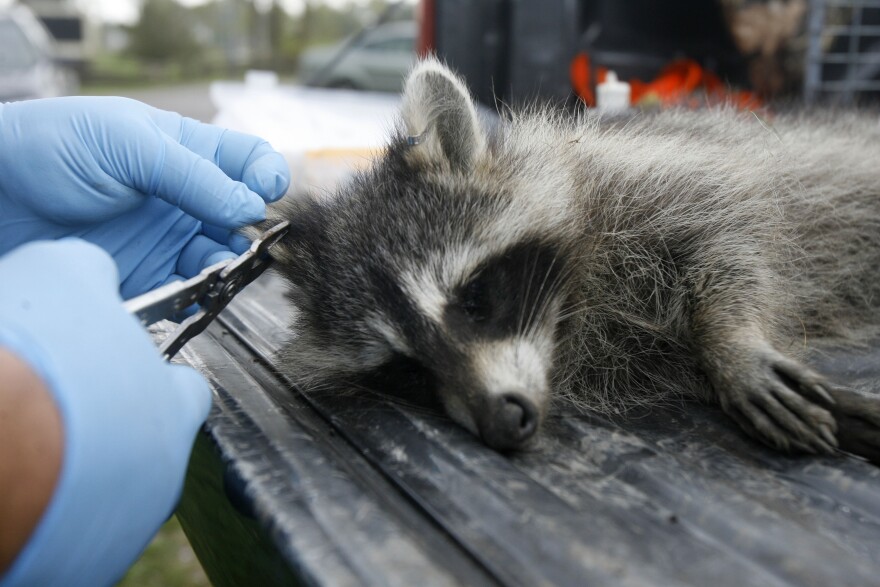Last week, a rabid raccoon was found in Frick Park, making it the sixth animal to test positive for the disease in Allegheny County this year.
There hasn’t been a case of rabies in a person in Pennsylvania since 1984, and the Centers for Disease Control and Prevention reports that annually there are only a few cases in the entire U.S. But if a person is bitten by a rabid animal and then untreated, they will almost always die.
“We want to be sure that the community avoids wild animals because they are at risk for having rabies,” said Dr. Kristen Mertz, an epidemiologist with the Allegheny County Health Department. “If there is a rabid animal, we want to make sure the public knows about it in case they have come in contact with that animal.”
The World Health Organization estimastes that 59,000 people die from rabies every year, 95 percent of those cases being in Asia or Africa. Though last year, a 6-year-old boy in Florida died from the disease.
The WHO also says 99 percent of cases are caused by contact with a rabid dog and that about half of patients are chidren under 15. The rural poor are also disproportinately represented in cases worldwide.
Rabies usually enters the body through a bite or scratch. In the case of bats, Mertz said sometimes the bite is so small it may go unnoticed.
“Then it gets into the muscle and then it gets into the nerves,” she said. “It works its way up along the nervous system into the brain and the spinal cord.”
Because the virus evolved to travel to the brain, the most serious type of bite by a rabid animal is a deep wound to the face. The closer the bite is to the brain, the faster the virus will travel there.
“After it multiplies in the brain, it then spreads to the salivary glands,” said Mertz. “That's why you'll find the rabies virus in the saliva of a rabid animal.”
After contracting the virus there is an incubation period, which can range from just a few weeks to several years.
The first sign that something is wrong is usually tingling at the site of the bite or scratch, followed by flu-like symptoms. As the disease progresses, people will start experiencing neurological issues likes confusion, agitation, delirium and seizures.
“So, any wild animal that bites a person, a mammal, we'd like to test it,” said Mertz.





